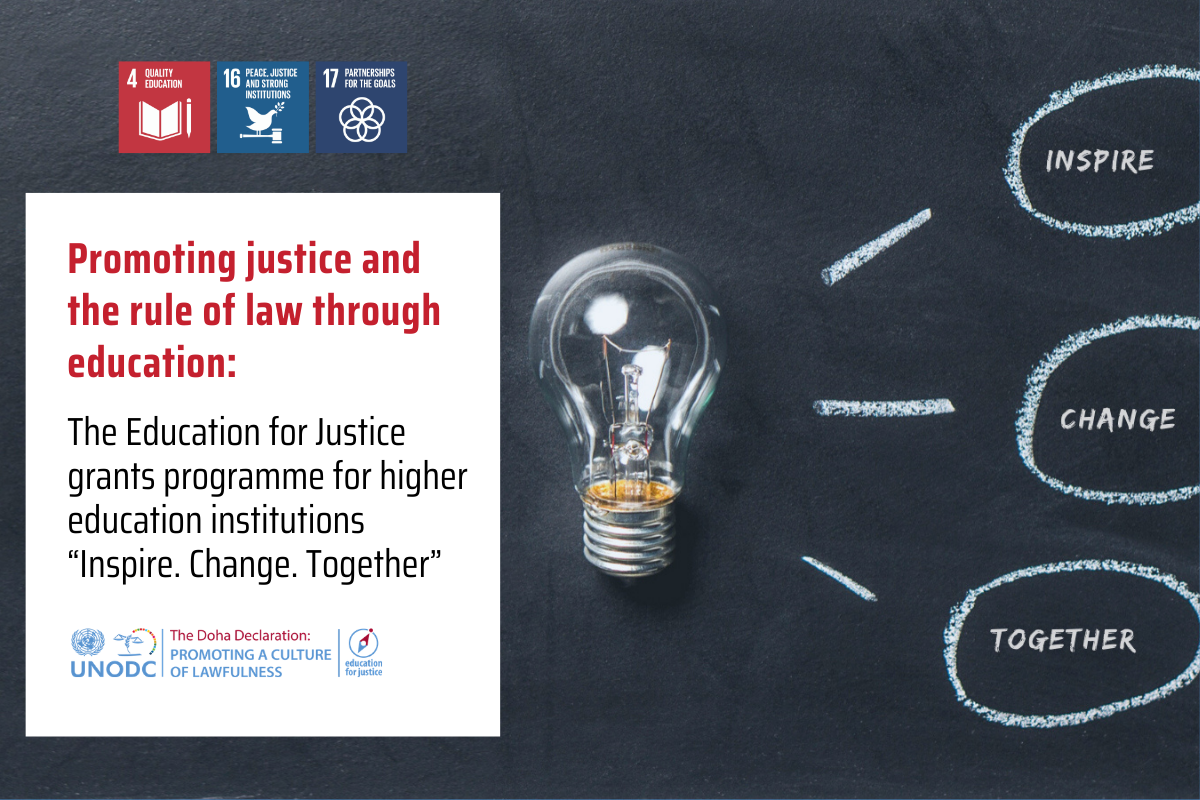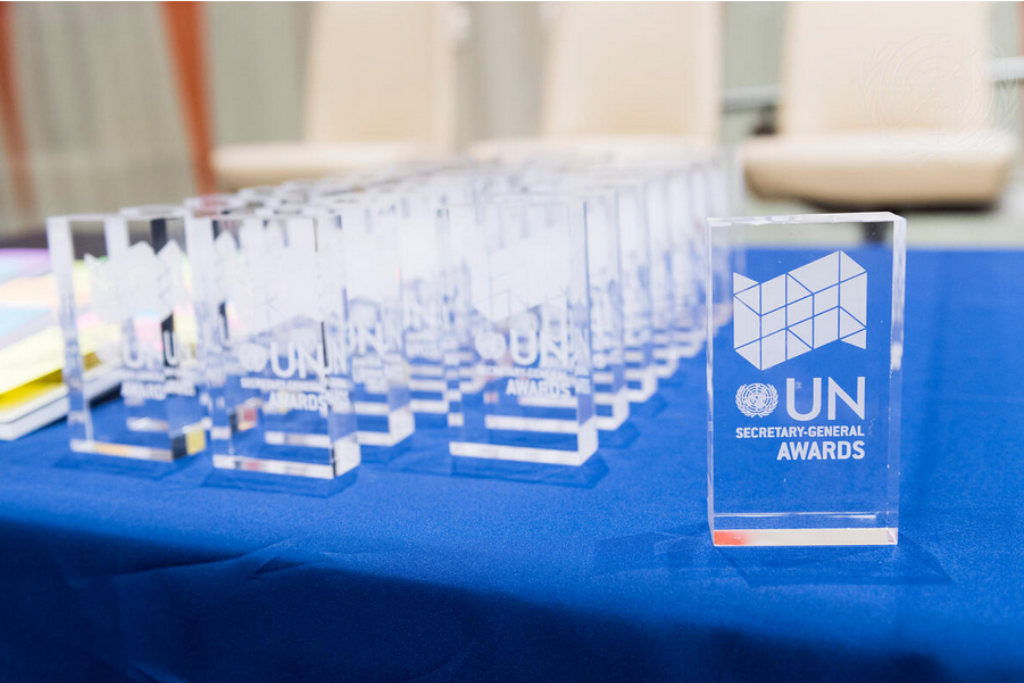Tackling crime and violent extremism, UNODC and UNESCO join forces to promote a culture of lawfulness through education
UNODC and UNESCO announced a new project focussed on educating youth on a culture of lawfulness to provide educational responses to meet some of the world's most pressing rule of law challenges.
The ' Initiative on Global Citizenship Education: Educating for a Culture of Lawfulness' is developed jointly by UNODC and UNESCO with the aim of equipping primary and secondary level educators with tools to uphold the principles of human rights and democracy, as well as to preserve and strengthen democratic institutions and the rule of law.
"Recognizing education's key role in building responsible citizens and respect for rule of law, UNODC is very happy to be partnering with UNESCO in this new initiative. We look forward to pooling our respective know-how and delivering what will undoubtedly be a valuable asset to educators in helping steer our future generation in the right direction," noted John Brandolino, Director of Treaty Affairs at UNODC.
A range of educational guidance materials will be developed around the initiative, alongside several activities to strengthen education systems. The initiative looks to enhance the capacity of policy-makers and teachers to plan and undertake educational activities that address the underlying causes and motivations of unlawful behaviour and strengthen learners' commitment to non-violence and the respect of the rule of law.
The initiative will be rolled out over the next two years and pools existing expertise from the two organizations. It draws from ongoing programmes currently being used to provide educational responses to a number of challenging issues. It builds on UNESCO's efforts to promote Global Citizenship Education aimed at empowering learners to become proactive contributors to a more peaceful, tolerant, inclusive and secure world, as well as UNODC's Education for Justice (E4J) initiative. Collectively, these are focussed on the prevention of violent extremism, tackling crime and corruption and promoting a culture of peace and non-violence.
The project is geared towards achieving the 2030 Agenda for Sustainable Development, in particular, Sustainable Development Goals 4 and 16, which call for quality education and the building of peace, justice and strong institutions.
Additional Information:


